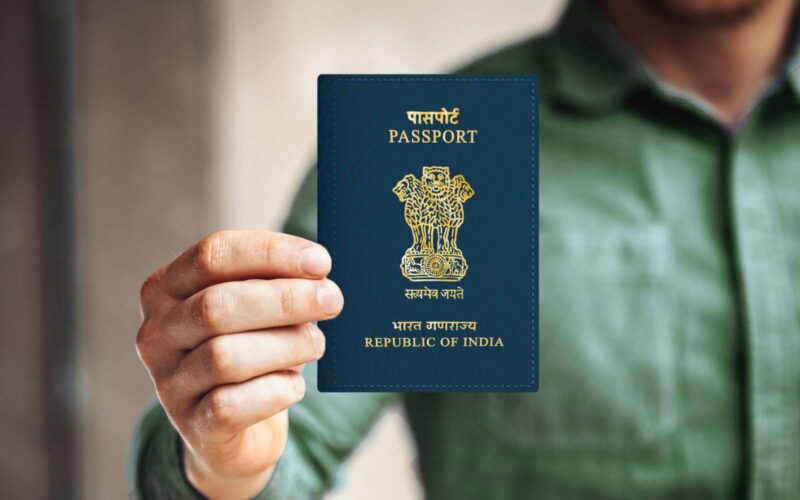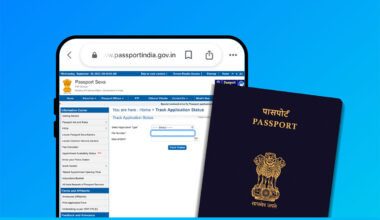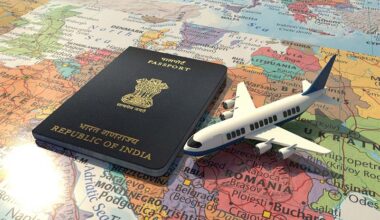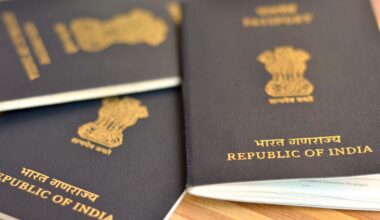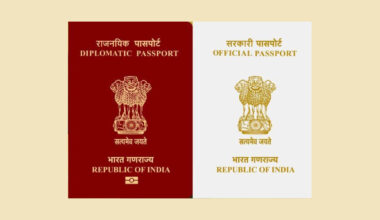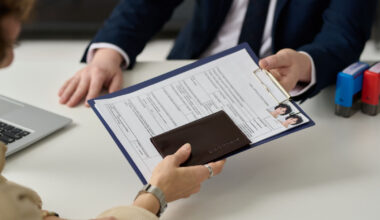The process of obtaining a passport is a significant milestone for individuals seeking to explore new horizons, embark on international journeys, or pursue various opportunities across the globe. To ensure the safety and security of its citizens, the Government of India has implemented a robust system of police verification for passport applications. This crucial step plays a pivotal role in verifying the authenticity of the applicant’s personal information, assessing their background, and safeguarding national security interests.
We will explore the step-by-step process of police verification, starting from the initial application submission to the final issuance of the passport in this blog. We will also focus on the documents required, the role of local police authorities, and the methods employed to verify the applicant’s identity, address, and criminal history.
Understanding Police Verification Process for Passports in India
Police verification for passport in India refers to the process of verification of personal information, background, and credentials of the applicant. It involves the local police authorities conducting an investigation to authenticate the applicant’s identity, address, and criminal history. The purpose of police verification is to ensure the authenticity of the applicant’s details, assess their suitability for obtaining a passport, and upholding national security interests. The verification process aims to identify potential risks, prevent identity fraud, and ensure that only genuine individuals with legitimate intentions are granted the privilege of international travel.
Types of Police Verification in India
There are two primary types of police verification processes pertaining to passport applications:
- Pre-Police Verification for Passport: Prior to the issuance of the passport, the applicant’s details are verified by the police station located in the jurisdiction corresponding to their address. This verification entails verifying details such as the applicant’s address, age, name, and other relevant particulars.
- Post-Police Verification for Passport: Once the passport has been issued to the individual, a subsequent round of verification is carried out by the police. This type of verification usually applies to tatkal passport applications.
Police Verification Requirements for Passport Renewal and Government Employees
- Police Verification Exemption for Passport Renewal: If the passport renewal application is submitted before the expiration of the current passport, there is no need for police verification. Typically, pre-police verification is a mandatory step in obtaining a passport. However, there are exceptions for government employees who can provide a No Objection Certificate (NOC) based on Annexure G or submit an identity certificate based on Annexure A.
- Second Layer of Police Verification for Government Employees: After the applicant’s details have been verified and the passport is received, a second layer of police verification takes place. This verification process is generally applicable to individuals employed in government, statutory bodies, and the public sector. For these individuals, the pre-passport issuance police verification step is bypassed. Instead, based on Annexure A, they can submit their original identity certificate along with the application form. Alternatively, Annexure G requires the submission of a No Objection Certificate. The issuance of their passports is contingent upon the outcome of post-police verification.
Online Steps for Passport Police Verification
Applying for police verification for passport can be initiated through the passport authority or by the applicants themselves via the official Passport Seva website. Here are the online steps to follow:
- Once you apply for the passport or the passport renewal, the passport office will assign the task to your local police station.
- Your local police station assigns personnel for the physical police verification for passports. They will confirm if you reside at the address mentioned on the passport.
- The confirmation is passed on to the Superintendent of Police Office.
- Next, the confirmation is sent to the Special Branch headquarter, which keeps all the criminal records.
- The Special Branch further confirms the data and approves its authenticity.
- If the Special Branch finds some issue with your application, they send the report to the passport application office. The report reveals ‘adverse’ to specify the same. If there are no such dubious reports, the Special Branch sends a clear report to the passport application office.
- Only after this process will the passport office take further steps for your application.
After your registration is finished, it is necessary for you to go to your designated Passport Seva Kendra on the scheduled appointment day. Make sure you bring along all the necessary documents needed for the police verification of your passport.
Documents Required for Passport Police Verification
When visiting the passport office to apply for a passport, make sure to carry all the documents that may be requested. Below are the key documents needed:
| Document Type | Examples |
|---|---|
| Date of Birth | Birth certificate, school leaving certificate |
| Address Proof | Utility bills (telephone, electricity, water), ration card |
| Identity Proof | Aadhaar Card, PAN Card, Driver’s License, Voter ID Card, LIC bonds |
It’s always advisable to refer to the official website of the passport office for a comprehensive and up-to-date list of required documents.
Note: After receiving your passport, you will be required to submit these documents for police verification. It is important to note that minors below the age of 18 are exempted from undergoing the police verification process.
Tracking the Progress of Your Passport Application
Once you have submitted your application, it is important to stay updated on its status. You can conveniently check the official website to track the progress of your passport application. The process of passport police verification is categorized into three groups:
| Verification Status | Description |
|---|---|
| Clear | All information provided by the applicant has been thoroughly verified and approved. Includes verification by Police personnel, Superintendent of Police, and Special Branch. No criminal records were found. |
| Adverse | Suspicious or unfavourable reports encountered during the verification process. Application may be withheld or cancelled. Accurate information is crucial to avoid adverse outcomes. |
| Incomplete | Verification report not completed by the police or uncertainties regarding residential information. Further clarification or additional documentation may be required for the verification process. |
Instances Where Police Verification is Not Required
There are specific situations where police verification is not necessary; however, it ultimately depends on the passport office’s decision. The following are instances where police verification may be waived:
- Passport Renewal: If an individual is renewing their passport before it expires, police verification may not be required. In such cases, the applicant is typically required to submit a No Objection Certificate (NOC) along with proof of previous police verification.
- Government Employees: Government employees who apply for a passport and provide their identification certificate through Annexure B may be exempt from undergoing police verification.
- Diplomatic Passport Holders: Individuals possessing a diplomatic passport are usually exempt from the standard police verification process for obtaining an ordinary passport. Instead, they are typically required to submit their identity certificate through Annexure B.
Note that the final decision regarding the requirement of police verification rests with the passport office. It is advisable to check the specific guidelines provided by the passport office or refer to their official website for the most accurate and up-to-date information regarding the need for police verification.
The Process of Online Police Verification for Passports
If you prefer not to wait for the passport authority to initiate a police verification request on your behalf, you have the option to request it yourself through the online process. Here are the steps involved:
- Visit the official website of the passport authority.
- Look for the “Register Now” option on the website and click on it.
- Complete the registration process by providing the required information.
- Log in to the website using your credentials or ID.
- Locate the “Apply for Police Clearance Certificate” option and click on it. This will open up a form.
- Fill in the form with accurate and up-to-date details to the best of your knowledge.
- Proceed to make the payment for the passport police verification fees by clicking on the “Pay and Schedule Appointment” button.
- You will be directed to the payment page where you can complete the payment process.
- After the payment is made, click on the “Print Application Receipt” option. This will generate an application reference number for you.
- Additionally, you will receive an SMS containing the same application reference number on your registered mobile number.
- On the scheduled appointment date, visit the Regional Passport Office (RPO) or Passport Seva Kendra (PSK) with the original documents as well as photocopies as required.
By following these steps, you can initiate the online police verification process for your passport application. It is important to ensure the accuracy and completeness of the information provided during the application and to carry all the necessary documents for the in-person appointment.
Timeframe for Receiving Passport After Verification
If you are curious about the duration it takes to receive your passport after the completion of police verification, it can vary based on the type of verification and application category. Here are the estimated timelines:
| Verification Type | Time to Receive Passport | Additional Information |
|---|---|---|
| Pre-Passport Police Verification | Around 3 working days after receiving the police verification report | Does not include the application submission date. |
| Post-Passport Police Verification | Around 3 working days | Does not include the application submission date. Does not require waiting for police verification and verification report. Tatkal processing time remains the same. |
| No Police Verification | Around 3 working days | Excludes the application date. Tatkal processing time is 1 working day, excluding the application date. |
Conclusion
Police verification for passports is a vital step in the application process, except for specific cases mentioned earlier. It is important to provide accurate information during the verification process.


